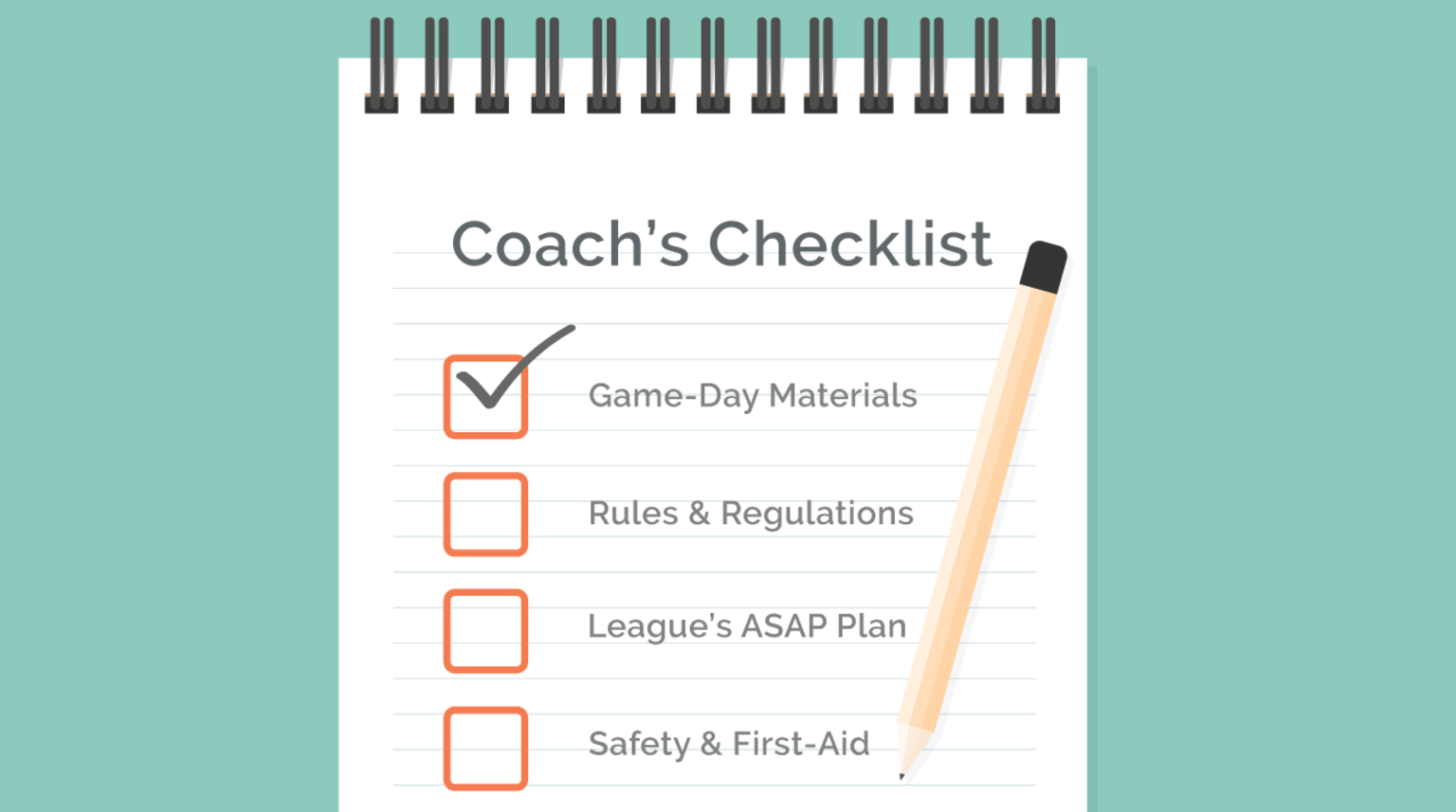Coaches Meeting: A Checklist

As the regular season nears, local league board members are focused on their various responsibilities and teams are prepping for games. Leading up to opening day, managers and coaches understandably have plenty of items on their to-do lists, so help them be ready by hosting a meeting with all your coaches and managers to discuss these details.
Game-Day Materials
It is recommended that each manager have these items with them at the game site: rulebook for current season, scorebook, pitch count sheet (for baseball), a hand-held pitch counter, roster of players that denotes family contact information and league ages, lineup cards, game schedule, medical forms, a watch or other time piece, contact information for league officials, and a cell phone.
The manager should also maintain a call list for volunteers who will assist with game operations outside of the dugout, for example: field maintenance, scorekeeper, pitch count, and umpires. Keep in mind the Little League background check regulations. These volunteers will provide regular service to the league and have repetitive access to children. For these reasons, volunteer applications and background checks must be completed on each before they assume their respective duties.
Rules and Regulations
Review all of the general Little League playing rules and regulations, highlighting those that are new, or have been adjusted, for the current season. Show the managers and coaches where to find these rules in the rulebook. To address any of these questions, ask your league or district’s Umpire-In-Chief to attend the meeting to provide explanation and interpretation.
You should also go over anything that is unique to your league, as outlined in your bylaws and constitution. Also, remind your managers and coaches about Little League’s eBook versions of the Little League Rulebooks, and the educational resources available on Little League University.
Your League’s ASAP Plan
Make the managers and coaches aware that your league has a safety program in place that has been approved by Little League International. Provide each manager with a copy of the plan, or make it clear where they can go to review the plan. Take the time to explain how the ASAP program works and how effects them.
Make sure they pay special attention to the facilities survey, as these volunteers are likely the ones to see any safety concerns or changes at your fields and complexes.
Safety and First-Aid
At this meeting, the league or district’s Safety Officer should hand out the safety and first-aid kits to each manager. The kits are to be fully stocked and the safety officer is to explain how to replenish the kits.
The conversation should also include the procedures for contacting first responders, a description of how and where to access the league’s Automated External Defibrillator (AED) if available, and how to complete an accident report.
This meeting is also a prime opportunity for your league or district to conduct on-site safety and first-aid training as noted in ASAP requirements Nos. 5 and 6. Invite a trained professional (Emergency Room physician, Emergency Medical Technician, EMT; or other first-responder) to conduct a CPR and first-aid certification class.
Pre-game Responsibilities
Each manager is responsible for their team. On game days, explain the responsibilities for both the “home” and “visitor” teams. Whether playing other teams in your league, traveling or hosting other Little Leagues, or playing in a district-operated program, each team must know what it is expected when arriving at the game site. This includes when to arrive, what dugout to occupy, access to the scorer’s table or press box, the appropriate time to begin warm-ups, designated warm-up areas (including batting cages and auxiliary field space), and established game start times.
Make this meeting a priority and use it to educate and inform. New managers and coaches will welcome the consideration and guidance, while veteran managers and coaches certainly appreciate the reminders.